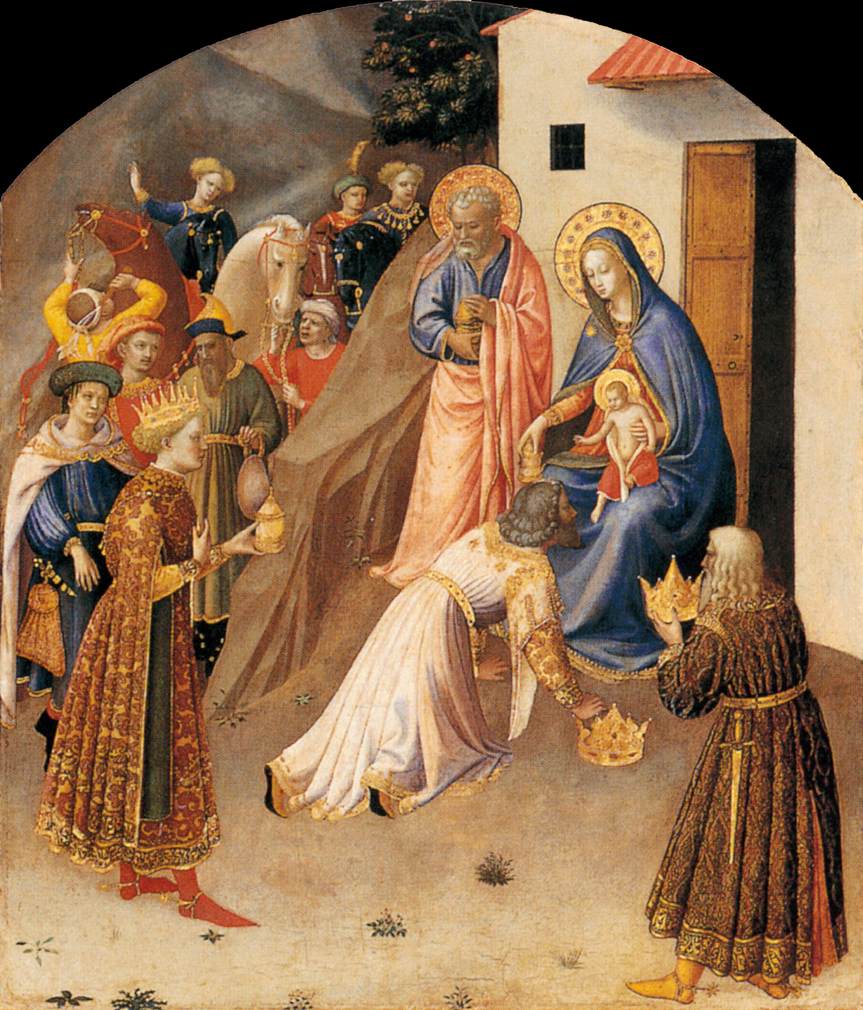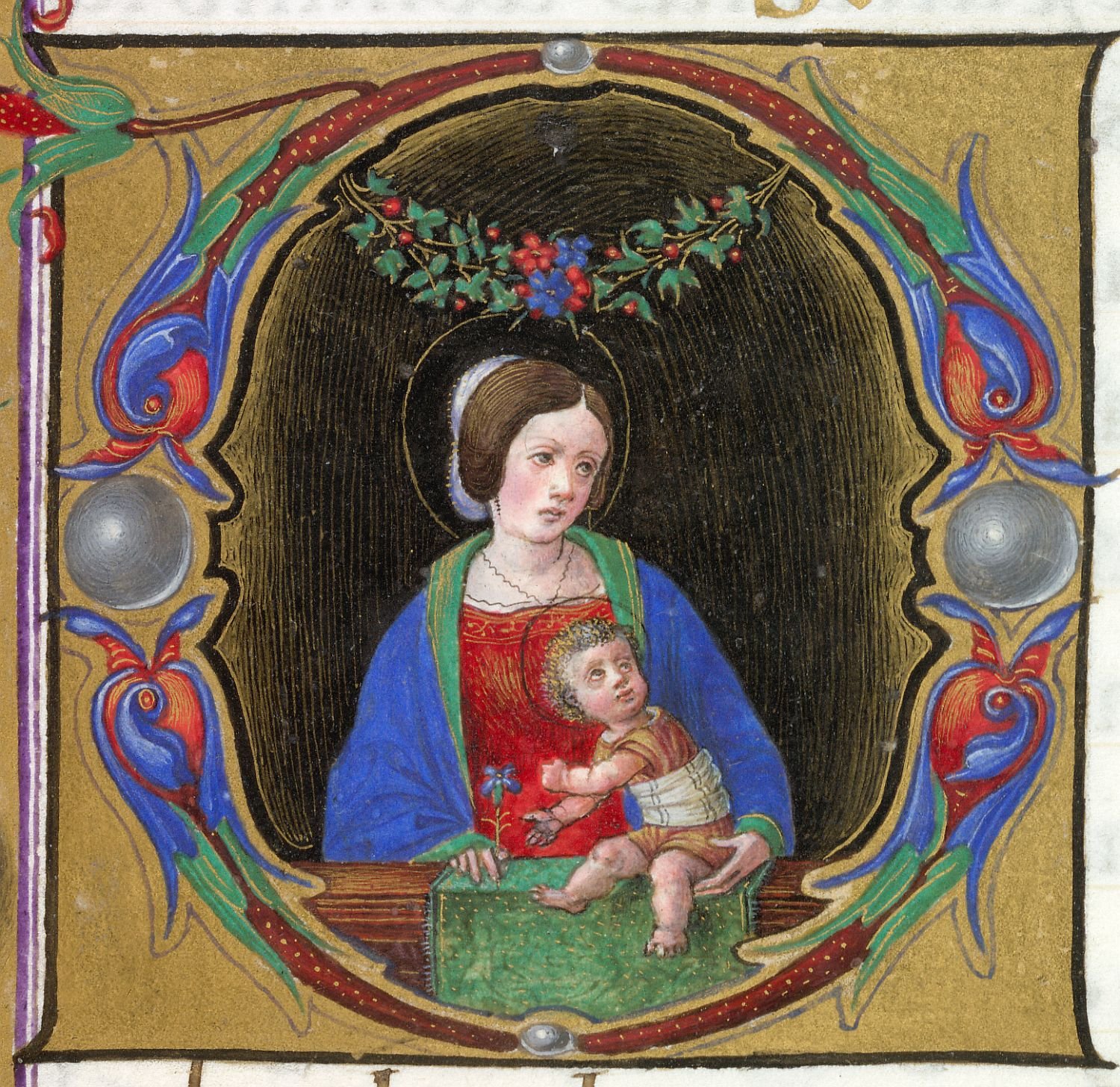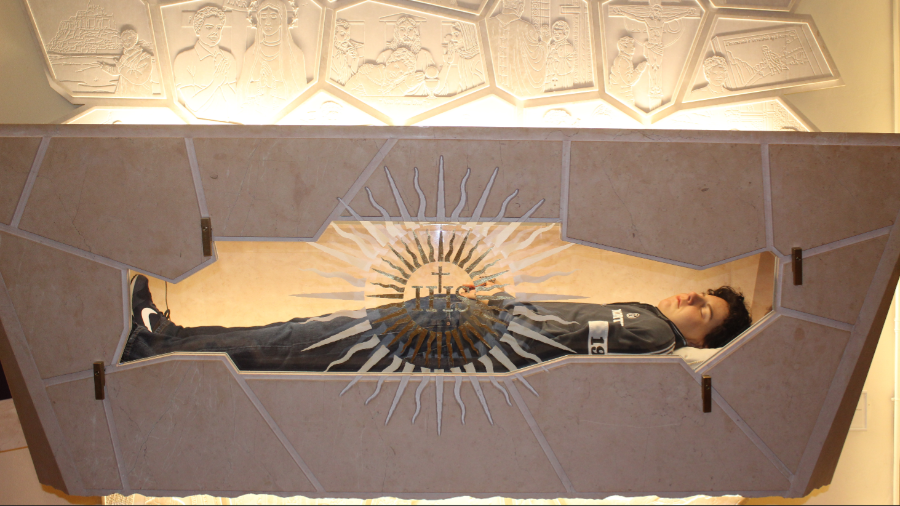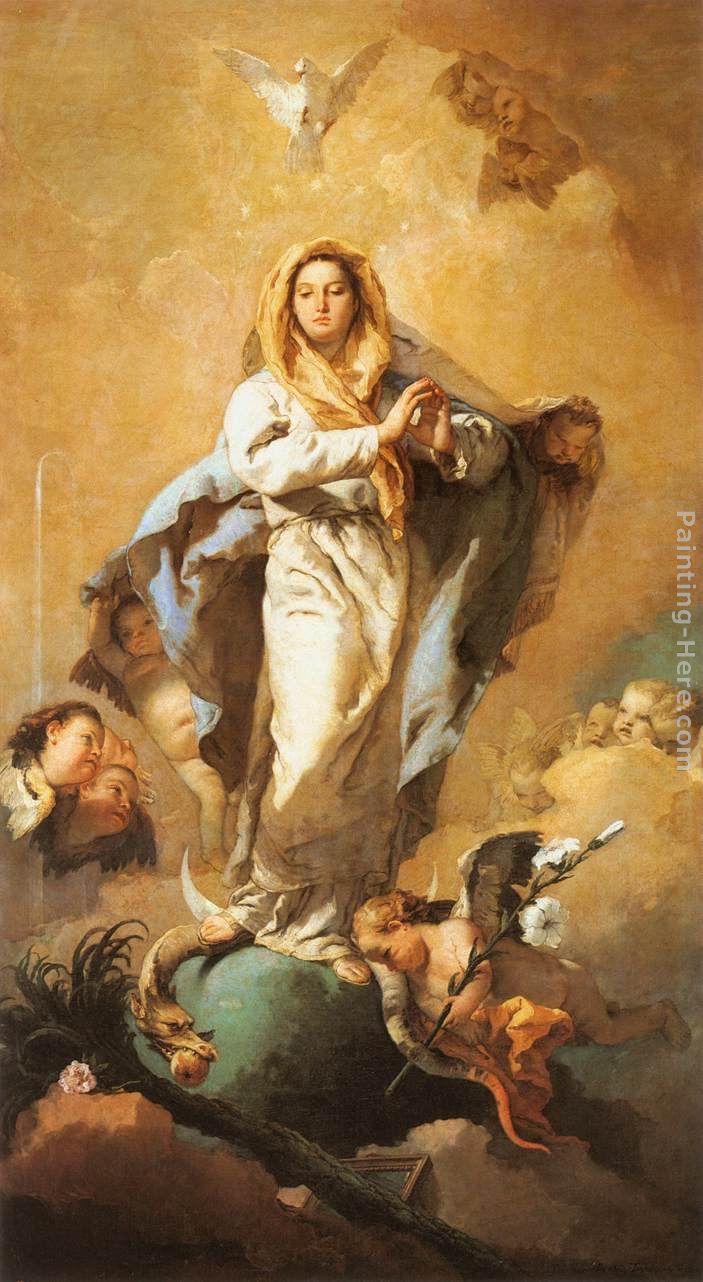The son of a noble family,
St. Simon Stock was born in England in 1165. At the age of twelve, he became a hermit in one of the vast forests for which England was then famous. He lived in the hollow trunk of an ancient tree, whence he derived the surname "Stock." Herbs, roots, berries, and an occasional crust of bread were his sustenance. He would leave his woodland retreat to visit different shrines of Our Lady, which in those days could be found throughout the kingdom. His devotion to Mary was so great that he would carve her holy name on the trees of the forest.
The Mother of God often appeared to St. Simon. During one apparition, she told him that the holy hermits of Mount Carmel, her special sons, would come to England and he was to join their order. Years passed by, and as prophesied, the "Brothers of Our Lady" came to
Aylesford in Kent. They accepted St. Simon into their ranks. After his ordination, he made a pilgrimage to the Holy Land where he stayed with the hermits on Mount Carmel in silence and contemplation like Elias of old. He returned to Europe to help establish the Order in the West. In 1245, the first General Chapter of the Carmelite Order in the West was held at Aylesford. St. Simon was elected Father General of the Order.
It was a formidable task. Because of the rise of Islam in Palestine, it was of vital importance that the Order become firmly established in Europe. This meant advocating a "mixed life" of prayer and active ministry, similar to the Franciscans, rather than a purely eremetical, contemplative life. St. Simon sent the young hermits to the universities to receive the training necessary to be preachers. His decision was strongly criticized by some of the hermits who thought their charism was being destroyed. Many prelates were trying to have the Carmelites completely suppressed. The very existence of the Order was threatened.
St. Simon composed
a prayer to Our Lady which begins: "Flower of Carmel, blossoming vine, splendor of Heaven, Mother Divine, none like to thee." He begged Our Lady to grant his order a
privilegium or pledge of protection in exchange for total loyalty and service, such as a king or queen would grant a knight or a vassal in feudal society. On the night of July 15-16, 1251, the Queen of Heaven appeared to St. Simon, the Infant Jesus on her arm, surrounded by a multitude of angels. She gave him a large
brown scapular. A scapular was a monastic apron worn by monks during their manual labor to protect their habits. Our Lady said: "Receive, my beloved son, this habit of thy Order: this shall be to thee and to all Carmelites a privilege, that whosoever dies clothed in this scapular shall never suffer eternal fire." What had been an apron now became a symbol of consecration to the Virgin Mary, a sign of her constant protection.
From that night on, the fortunes of the Carmelite Order improved. They received the protection of the Pope. The brown scapular became the main part of their habit, while small scapulars were distributed among the faithful. The brown scapular has become one of the most highly indulgenced sacramentals of the Church. In the fourteenth century, after a vision of Our Lady, Pope John XXII published the
"Sabbatine Bull," promising delivery from purgatory on the Saturday following one's death to all who worthily wear the brown scapular, fulfilling the prescribed conditions.































.jpg)













